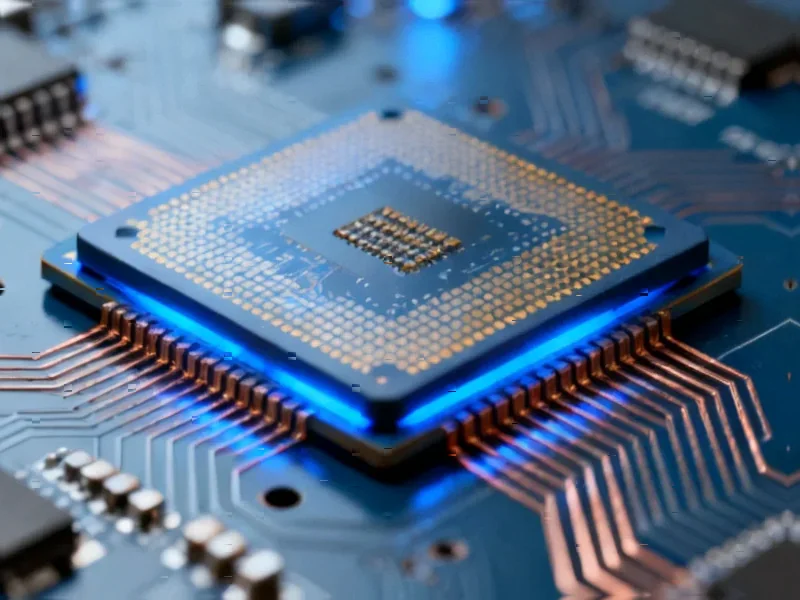According to Forbes, President Trump stated he will allow Nvidia to conduct business with China except for the “most advanced” Blackwell chips, declaring “the most advanced, we will not let anybody have them other than the United States.” Nvidia’s shares rose 1.4% to $205.31 in premarket trading following these comments, coming just after the company became the first to breach a $5 trillion market cap. During discussions with Chinese counterpart Xi Jinping in South Korea, Trump praised Nvidia CEO Jensen Huang as “amazing” and called Blackwell chips “super duper” and “probably 10 years ahead of any other chip,” though he later clarified they didn’t specifically discuss Blackwells during the meeting. Nvidia’s CEO expressed hope for eventual China sales while acknowledging the final decision rests with Trump, revealing the complex interplay between corporate ambition and geopolitical constraints.
The $5 Trillion Balancing Act
Nvidia’s unprecedented market valuation creates both leverage and vulnerability in these negotiations. The company’s meteoric rise to becoming the first $5 trillion company means every percentage point of potential revenue carries enormous weight. Trump’s position represents a calculated compromise – allowing enough China business to maintain Nvidia’s growth trajectory while protecting what he calls America’s “10-year advantage” in AI chip technology. This isn’t just about export controls; it’s about managing the valuation of what has become one of America’s most valuable companies while pursuing national security objectives. The immediate 1.4% stock bump suggests markets see this as a net positive, but the long-term implications for Nvidia’s China strategy remain uncertain.
Blackwell as Geopolitical Currency
The Blackwell platform represents more than just advanced semiconductor technology – it has become geopolitical currency in the U.S.-China tech cold war. By drawing the line specifically at Blackwell while allowing other Nvidia products, Trump creates a tiered approach to technology export that acknowledges China’s legitimate AI development needs while maintaining American supremacy in cutting-edge capabilities. This nuanced position reflects an understanding that completely cutting off China from advanced chips could accelerate their domestic development efforts, potentially shortening rather than extending America’s technological lead. The approach mirrors historical technology control regimes while adapting to the unique characteristics of AI acceleration hardware.
Revenue Reality Versus Security Rhetoric
Nvidia faces a delicate dance between its substantial China revenue streams and compliance with evolving export controls. Before restrictions intensified, China represented approximately 20-25% of Nvidia’s data center revenue, making it a crucial market that the company cannot afford to abandon entirely. Trump’s comments during his 60 Minutes interview about “producing electricity like never before” hint at the administration’s broader strategy of maintaining American energy advantages to power AI infrastructure. For Nvidia, the business calculus involves developing China-specific products that comply with export limits while maximizing revenue potential – a strategy that requires constant navigation of shifting political winds and technical specifications.
The Referee Role and Future Negotiations
Trump positioning the U.S. as “sort of the arbitrator or the referee” in Nvidia-China negotiations represents a novel approach to tech diplomacy. This framework allows the administration to maintain oversight while giving companies flexibility to negotiate commercial terms. However, it creates uncertainty for Nvidia’s planning cycles and product development roadmaps. The company must now factor in not just market demand and technical capabilities, but also real-time geopolitical negotiations. Jensen Huang’s cautious optimism about eventual China access reflects the reality that these discussions will be ongoing throughout Trump’s potential administration, creating a persistent overlay of political risk on Nvidia’s largest growth market.
Competitive Landscape Implications
This policy stance creates ripple effects across the global semiconductor competitive landscape. AMD, Intel, and Chinese domestic players like Huawei are all positioning to capture market share that Nvidia might be forced to cede. The tiered approach to export controls gives competitors clearer parameters for where they can compete effectively. More importantly, it signals to the global market that America intends to maintain its AI hardware supremacy while allowing controlled technology transfer – a message that will influence investment decisions across the semiconductor ecosystem for years to come.




